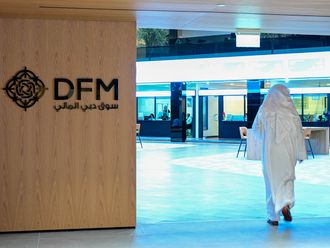To mitigate economic pressures emanating from declining hydrocarbon revenues, GCC states will be gradually implementing Value-added Tax (VAT) from January.
Given that VAT is on consumption, it is sometimes considered as regressive in nature. However, given some of the unique characteristics of the proposed tax reforms, it is likely to be quite progressive.
The proposed rate of 5 per cent is low compared to some other fiscal regimes like Norway and France, where VAT is levied at 25 per cent and 20 per cent, respectively. Further, some necessities like essential food items, education, health care, etc, will be either exempt or zero-rated.
Within the expenditure distribution, households with higher consumption are likely to pay a higher proportion of their disposable income in VAT than households with lower consumption. As an individual’s consumption beyond necessities is one of the best observable indicators of living standards, a consumption-based tax is amongst the most equitable tax bases.
Therefore, the overall impact on household spending will be minimal with a slight expected increase in inflation to around 3.5-4 per cent in 2018.
An interesting case of VAT implementation will be on financial services. Given the sheer volume of financial transactions and administrative constraints, financial services are usually exempt from taxes and the same is the case for GCC.
The exemption entails that VAT will not be levied on financial transactions and any VAT incurred on providing these transactions will be a sunk cost and cannot be recovered. Financial services are usually classified as principal and third-party transactions.
The principal transactions include deposit mobilisation, extension of credit, contracts of purchase, swaps and other form of monetary rights. Third-party transactions refer to fee-based intermediary services where financial institutions act as a facilitator. While most of these services will be exempt, the financial services will invariably be a combination of exempt and taxable supplied.
There are certain institutional overheads like marketing, utilities and office supplies that will not be recovered and have to be absorbed by the institution. Similarly, outsourced services like customer services or data processing will be under the VAT regime. These will be compounded with incidental costs of compliance resulting in declining banking margins.
Therefore, in 2018, while commercial banks are likely to remain well capitalised, resilient and highly liquid, the pressures emanating from VAT may impair profitability to some extent. This might be challenging for the financial sector, as in globally integrated fiscal systems, a slight variation in business dynamics may result in competitive distortions.
The larger banks are likely to exhibit adequate flexibility to provision any potential impact, but smaller banks may have to revisit their pricing going forward. The introduction of new tax reforms can initially cause some micro-level disruptions but it is likely to benefit GCC manifold. The incremental revenue from VAT in 2018 is estimated to be $14.1 billion (Dh51.78 billion) for Saudi Arabia, $8.1 billion for the UAE and $2.7 billion for Kuwait.
Consequently, real GDP is expected to grow at $2.5 billion compared to $2 billion in 2016. Apart from additional revenues, VAT is likely to support foreign trade both within the GCC and with the outside world.
This will have a positive impact on business landscape despite political challenges. As a result, the governments can continue their support towards subsidies and enhance public spending, notably towards infrastructure spending in social sectors like education, health care and housing, and consequently creating new employment opportunities.
Nawazish Mirza is Associate Professor of Finance and Deputy Programme Director, Global MBA and MGB, at SP Jain School of Global Management, Dubai Campus.












